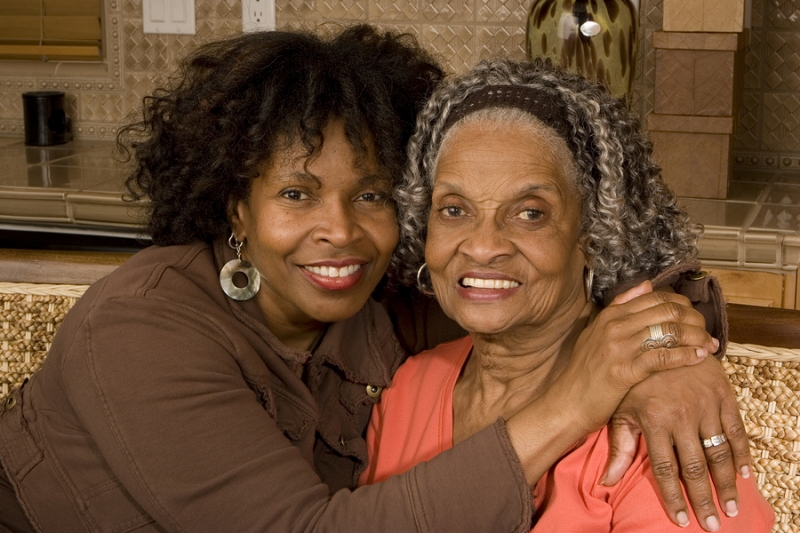I was on a plane recently travelling to Missouri and sat next to a lovely woman in her 80s. During the course of our flight, we chatted extensively, and based on our conversation, I have to somewhat sheepishly confess: She is leading a more active life than me (and I’m only 41)! In fact, she was on her way to a big 1920s-themed party in Kansas City for her Questers Preservation Club. From there, she had plans for a river cruise, a hiking trip, and a few other adventures. She was really inspiring.
Halfway through our conversation, she mentioned that she was planning to move to a continuing care retirement community in North Carolina but that she had not yet told all of her kids. She HAD told one daughter, but she “thought I was moving to a nursing home.”
While the retirement community this woman plans to move to is far from what you would think of when you conjure an image of a “nursing home,” her daughter’s initial reaction probably isn’t uncommon. I could imagine the daughter’s response may have been something along the lines of, “Oh mom, you’re not old enough to go to one of those places!”
I’m sure a top priority of this woman’s children is that she be happy with her living environment. However, it is often a lack of understanding about the realities of what it’s like to live in a CCRC that results in inaccurate preconceptions — among seniors as well as their adult children — about the many advantages that people experience by living there.
>> Related: Sibling Rivalry: When Family Members Disagree on Senior Care Options
Dealing with adult children’s apprehension
I’ve written several times about seniors who don’t feel like they are ready to move to a senior living community, such as a CCRC. Some seniors have preconceived notions about what it means to live in a CCRC and what it might say about them if they move there; they worry that they are resigning themselves to being “old folks” who will no longer be in control of their own time. But as this conversation on the airplane revealed, sometimes it is actually the adult children whose misinformation and preconceptions get in the way of our parents making a lifestyle decision that may ultimately be best for them.
In this particular case, the lady I was talking with had lost her husband five years ago. Clearly, she’s still quite active, healthy, and a very positive thinker, yet she’s not naïve or in denial about the fact that things can change — sometimes quickly. She isn’t afraid to face head on the realities of aging, and she wants to have a plan in place. Yet, because of her adult children’s viewpoint and concerns, she is holding back from making the move.
>> Related: Are Preconceptions About Senior Living Communities Holding You Back?
Differing CCRC vantagepoints
From the aging parent’s standpoint, a move to a CCRC can have numerous advantages:
- Access to an array of on- and off-campus events and resident-led groups that allow them to enjoy life at whatever level of activity they like, from very active to relaxed and leisurely.
- A community of people who are in a similar place in life, providing them with a great social support network in the years to come. (This factor may be especially appealing to someone like my seatmate who had lost her partner several years ago and may be feeling an increasing sense of loneliness as a result.)
- Security that they will receive a continuum of care services if and when they need them.
- Comfort in knowing they will not be a burden to their family should their health decline.
But from an adult child’s perspective, it’s understandable that they may have certain misgivings about mom and/or dad moving to a CCRC such as:
- Fraught emotions about giving up the house that they have lived in for so long and that has so many fond family memories associated with it.
- Concern that their parent will not be happy living in a CCRC with other “old people” or won’t feel at home in their new setting.
- Uneasiness about accepting the fact that their parent is getting older and may eventually be infirm at some point.
- Uncertainly about the financial implications of a move to a CCRC for their parent and worrying that the parent could outlive their retirement savings.
>> Related: Can You Catch the “Old Disease”?
Understanding the benefits of a CCRC
I certainly don’t mean to paint my seatmate’s children as the “bad guys” because they clearly care about their mother, want her to be happy, and may simply not know the realities of what it is actually like to live in a CCRC with residents who are living a vibrant, active lifestyle. But as the adult daughter’s reaction shows, there needs to be more education — for all age groups – about the various types of senior living choices that are out there, and how they can be helpful and beneficial for many people, even while they are still healthy and active in many cases.
The above article was written at myLifeSite and is legally licensed for use.


Recent Comments